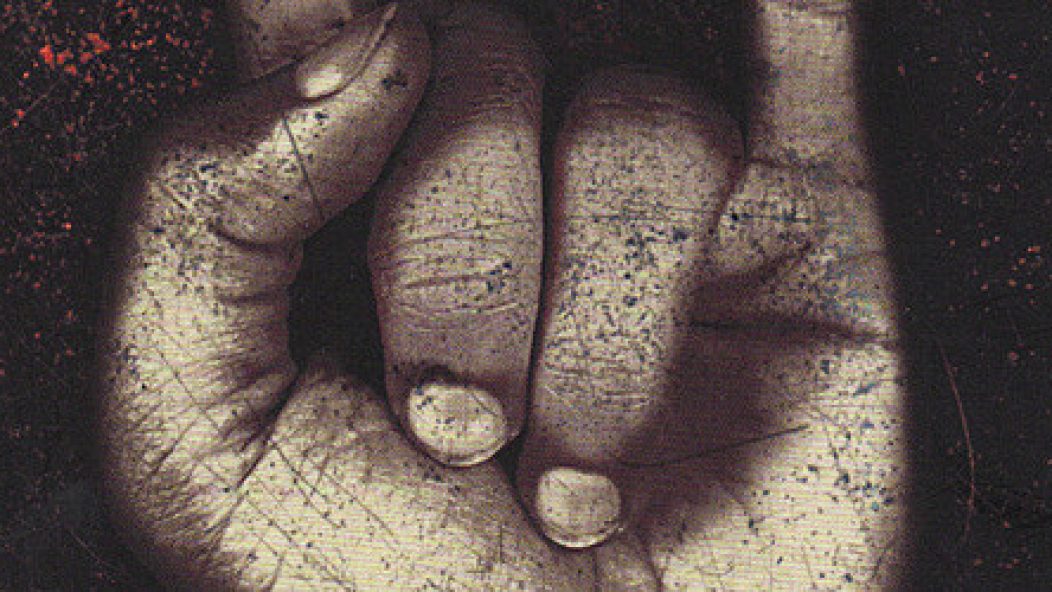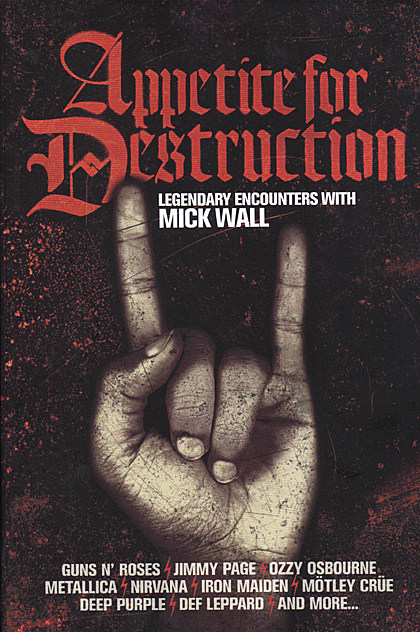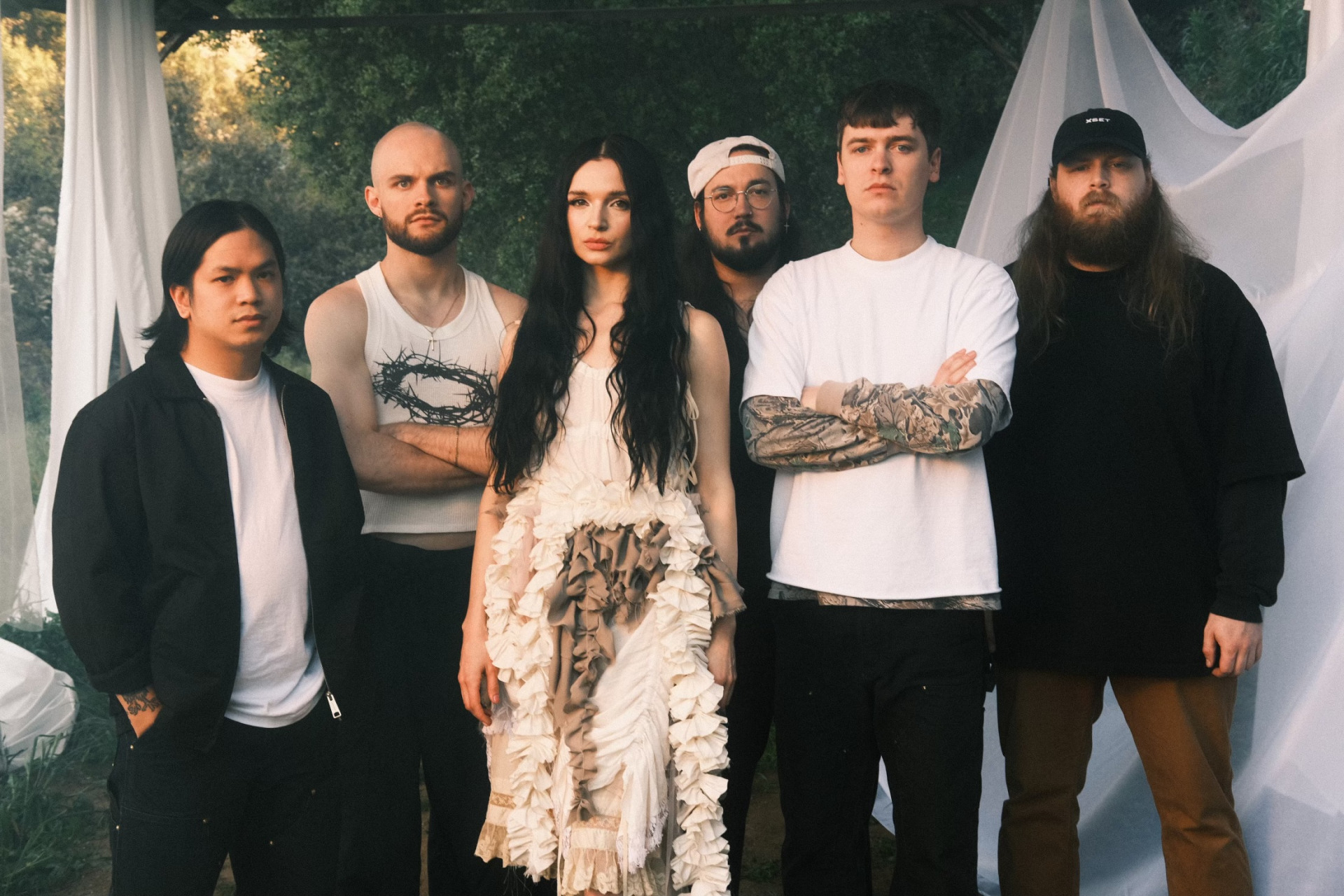
The Read Chord: Mick Wall - Appetite for Destruction
. . .
If metal ever had a celebrity journalist, it was Mick Wall. The onetime Kerrang! writer partied with David Lee Roth, hung out with Iron Maiden at the famous 1985 Rock at Rio gig, visited Pushead’s San Francisco apartment, and was insulted in a Guns N’ Roses song. Appetite for Destruction is a collection of Wall’s most notable writing for Kerrang! in the ’80s and pieces from other magazines in the ’90s when he transitioned (likely with little choice) into covering grunge.
Appetite for Destruction is imperfect if sometimes engaging. A better title might have been No Appetite for Sobriety. Stories often follow a similar trajectory: take a red-eye flight to an exotic location, empty the hotel bar, wait around for rock star, get loaded with the band while a tape recorder runs in the background. Many of the ’80s heroes that Wall profiles are remarkably self-indulgent and shallow. Wall tries to act like he’s not a participant in the shenanigans, but a few stories sound like they were written by a lucky fan posting on Facebook. (Look! Here I am partying with Whitesnake!)
Occasionally, that approach yields juicy copy. Musicians relaxed around Wall and showed uglier parts of their personalities. Publishing the comments ended in scandal. The best example is Axl Rose’s ludicrous explanation of his use of the n-word: “It’s part of the English language, whether it’s a good word or not. It’s a derogatory word, it’s a negative word. It’s not meant to sum up the entire black race, but it was directed towards black people in those situations”. A recently straight Dave Mustaine drops this choice bit in 1990: “I used to get a heroin boner that would last for six hours, but I just couldn’t come. Not that I’m sure I could keep going! As I say, that’s what I’m into now: eating, fucking, and skydiving”.
The weakest pieces are when Wall takes to the road and chronicles his adventures. Wall wants these stories to continue the tradition of new journalism, where narrator becomes as much a part of the story as participant. What made it work for Hunter Thompson and Tom Wolfe was that they had a genuine distance from their subjects and approached them as ingénues. They were also much better writers. It’s hard to position yourself as an outsider when you fly with the band, hang out with the PR reps, and drink their booze.
. . .
Axl Rose calls out Mick Wall
“Get in the Ring”
. . .
The result of such backslapping? The main takeaway from Wall’s piece on the disastrous Moscow Peace Festival is that the food sucks in Russia. Wall also spends valuable space writing about his counterpart Ross Halfin’s farts in his Rock in Rio story. The only riotously funny exception is when Wall and Halfin go to interview Poison at a New York stadium show and are locked in a storage room for hours by the band’s staff.
When Wall lets his voice take a back seat and listens, his work is often poignant and moving. Wall was offered an unusual level of access and caught musicians at their best and worst. He meets Def Leppard drummer Rick Allen shortly after his return to the stage. Allen lost his arm in accident and thought he would never perform again. The resulting portrait is inspiring, almost a tearjerker .
Wall was also the only journalist to meet Ozzy in rehab after the struggling icon tried to strangle his wife Sharon during an alcoholic blackout. Ozzy, who was viewed then as an unstoppable party machine, comes off as scared and vulnerable. “Today, when my children left me, that was enough for me to want to stop. They were all crying, looking out the back of the Range Rover, and my heart broke. And being in a place like this, it’s kind of lonely, you know? You don’t know if they’re going to put electrodes to your balls or what”.
Throughout the book, Wall intimates that things were better in the ’80s when rock stars were covered by a cabal of writers, and albums weren’t shipped digitally. But music writing – especially writing about metal – is better than ever. The Internet has ensured that metal musicians can’t live in glass bubbles. There are also a greater number of talented writers covering metal. It does mean that readers need to sift through more dreck, but it also ensures that worthy metal isn’t overlooked for lesser talent backed by deep-pocketed labels. (Never forget the thrashing Kerrang! gave to Hellhammer, a band that changed metal history with a few poorly produced demos).
Wall’s book is in some ways a perfect record of the decade in which he flourished. The self-indulgence and self-importance of both writer and subject are often galling. But if you look hard enough, you can find humanity underneath the hairspray.
. . .
BUY APPETITE FOR DESTRUCTION
Amazon (US) (Paperback)
Amazon (CA) (Paperback)
Amazon (UK) (Paperback, Kindle)
. . .
The Read Chord is Invisible Oranges’ column about reading. The material may or may not be about metal, but will be of interest to fans of metal. Writers on staff and guests will pen the column. Readers can also take a whack at it. (For proposals, email invisibleoranges at gmail dot com).
. . .











